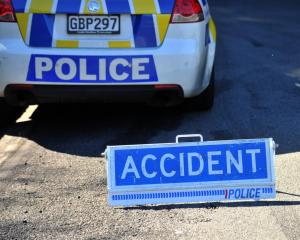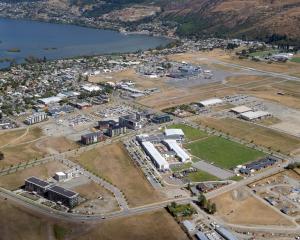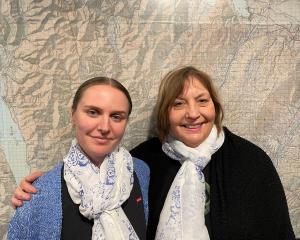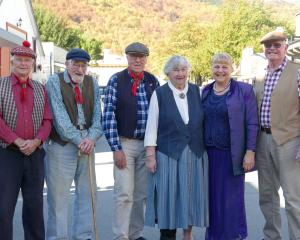Professor Stephen Robertson told players, sponsors and organisers at The Hills Cure Kids Open golf tournament on Saturday he had been given a rare opportunity to find the cause of biliary atresia.
The condition occurs when the common bile duct between the liver and small intestine is blocked or absent.
If the condition is undetected, it leads to liver failure.
"Bile backs up and rots in the liver within a few weeks of babies' being born. They turn yellow and within a few months they're dead, unless they get a liver transplant ... Every transplant costs over $1 million ...
"Or [they] have a pretty gross surgery to palliate them, but they don't last long. No-one knows what causes that disease."
Prof Robertson said in the Western world, one in 15,000 children were born with the disease, but in the Maori, Polynesian and Taiwanese populations, one in 5000 babies were born with it.
The Bay of Plenty family, which was "a very special experiment of nature", had presented a unique opportunity to help find the cause and cure it.
The family dated back about six generations, but it was only in the past two generations - since the disease had been "obvious" - the prevalence of biliary atresia had been noted.
"[They] have dozens of kids within their branches with this disease. That family is a very special indication that there is a genetic predisposition. There is not another indication [like it] throughout the world."
Prof Robertson said three weeks ago he attended a hui with about 60 members of the family who were "living with a pretty ugly reality".
"Some of them were pretty tough old women; they told me about their experience and the tears began to flow.
"There were young women there with yellow babies on their knees and tubes up their noses.
"It was a pretty raw ... emotional experience, but on another level ... as a New Zealander I would like to think I can step up and take this opportunity.
"That's what I want to do: I want to find that [genetic] variant for that family."
The research was "just beginning", but Prof Robertson said he would like to get to work as soon as possible.
"Obviously, with any science, we want to proceed as quickly as possible, but on the other hand we've got to go at their pace. The relationship is just forming. They are thinking about it; obviously they're keen for some answers."
Forty-six golfers from throughout New Zealand took part in the third annual tournament, which raises money for Cure Kids, an organisation funding research into life-threatening childhood illnesses.
Cure Kids South Island and Fiji regional manager Josie Spillane, of Queenstown, said the event raised $73,000, which "far exceeded our expectations".
The tournament was won by Patricia Duke, who received an automatic entry to the 2011 tournament, and Mark Sullivan, of Auckland, who won a year's free membership to The Hills.












